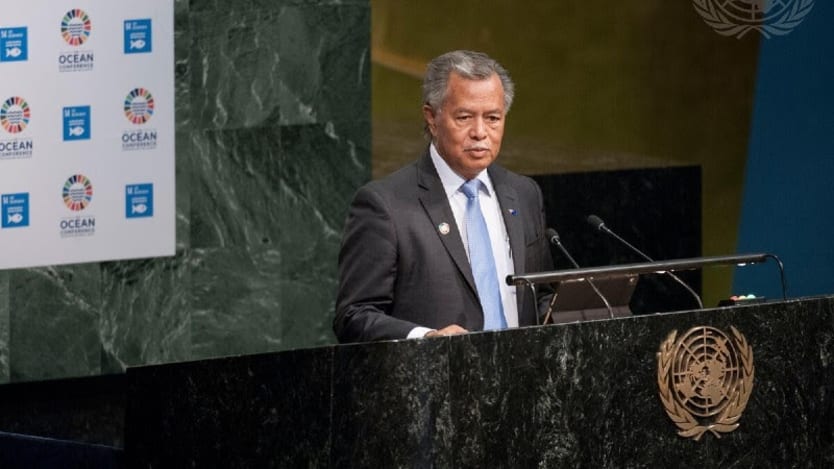
Controversy over the election of Henry Puna, former prime minister of the Cook Islands, as secretary-general of the Pacific Islands Forum last week has resulted in its Micronesian members splitting from the group.
Puna was elected with nine votes ahead of Gerald Zackios from the Marshall Islands on eight votes. Under a “gentlemen's agreement” used to elect forum leaders on a rotating basis, its Micronesian members believed their candidate should have been appointed to the role.
On Tuesday, the leaders of Kiribati, Marshall Islands, Micronesia, Nauru, and Palau released a communique on their decision to leave the forum, expressing “great disappointment with the Pacific Islands Forum Secretary General appointment process.”
Why it matters: The Pacific Islands Forum is an important enabler of dialogue between Pacific countries, and partners Australia and New Zealand on trade, health, security, politics, environment, and development priorities. But through this forum, they also engage global stakeholders including the United Nations, World Bank, European Union, France, United States, and more. It is an avenue for the Pacific to communicate their priorities and needs to political allies and donors globally.
What happens now: Micronesian nations will initiate formal withdrawal processes, but there is a possibility that not all will follow through. They will now use the Micronesian Presidents’ Summit as their main collaboration forum. Priorities may differ from those of the Pacific Islands Forum — and this could see development programs needing to split and change in line with new country objectives.
What to watch: With the Pacific at the front-line of climate action, a strong region engaging globally is important. The response from Puna and the Pacific Islands Forum will determine if the relationship can be mended. But the role of international partners in supporting future leadership directions will also be a space to watch.
